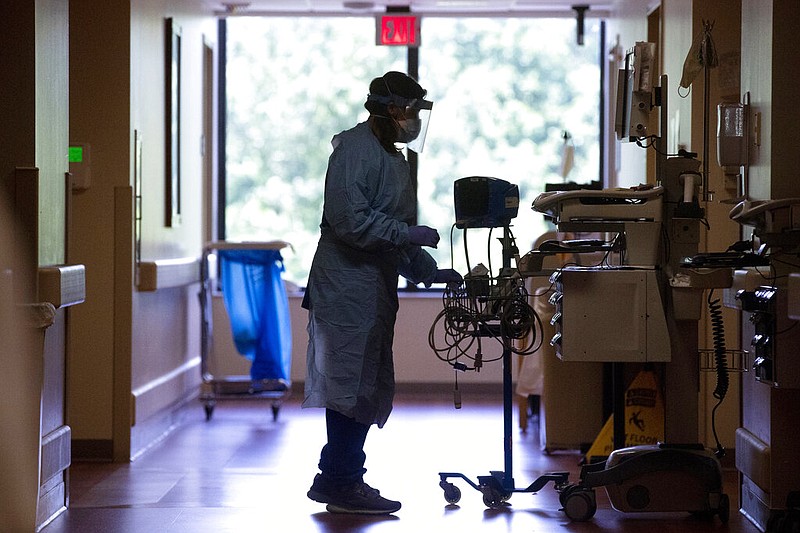Staffing shortages due to a nationwide coronavirus surge are forcing hospitals to make difficult decisions, including whether to ask employees who have tested positive for COVID-19 to come into work.
Although Tennessee hasn't reached that point, Tennessee Health Commissioner Dr. Lisa Piercey said during a news briefing this week that the U.S. Centers for Disease Control and Prevention has protocols that allow the practice as a last resort during crises.
"That is a practice that is being employed in some states that is starting to be discussed here amongst industry who are looking for staff and are desperate to get staff at the bedside," Piercey said. "We have not made any official recommendations on that. That will be industry driven, but it is allowable by the CDC."
Tennessee continues to set new records for its number of patients hospitalized with COVID-19, and the volume of patients is expected to increase as a result of infections spread during Thanksgiving travel and gatherings.
"Hospitals in many areas of the state now have little-to-no bed availability and are having to divert patients to other locations that are also filling up quickly," Dr. Wendy Long, president and CEO of the Tennessee Hospital Association, said during the news briefing.
As of Tuesday, coronavirus patients made up 34% - or one out of every three - patients in intensive care units in the state, Long said.
"For context in July, when cases and hospitalizations were also on the rise, COVID-positive patients comprised only 19% of total ICU patients and only 6% of all floor bed patients," she said.
Compounding the issue is the fact that ICU patients require specially trained staff and more one-on-one attention than other hospitalized patients.
In an attempt to meet the growing demand and maintain health care services outside of COVID-19, Long said, Tennessee hospitals are converting other hospital units to ICU beds, doubling up patient rooms, increasing patient-to-nurse ratios, retraining and reassigning providers from administrative and outpatient roles to inpatient care and recruiting former or retired staff back into the workforce.
"Hospital capacity has always been a concern, but we're running out of levers to pull. And at this rate of growth, it will impact other critical services that are important to you and your community," Long said.
Although Chattanooga hospitals are filling up themselves, officials said that COVID-19-positive staff are not allowed to work. Officials also said it's extremely important to seek needed medical care because numerous bad outcomes - including otherwise preventable deaths - have occurred as a result of delaying care throughout the pandemic.
"Erlanger is not working staff who have tested positive for COVID-19. Erlanger continues to follow the CDC guidance for how and when hospital workers can return to work following a COVID-19 exposure. We want to continue to encourage our community to seek the care they need. We are open, safe and continuously put safety in the forefront of our practices," Erlanger officials said in an emailed statement.
Hamilton County's other two health systems shared similar responses.
A spokesperson for Parkridge Health System said that "Parkridge Health requires colleagues who test positive for COVID-19 to remain at home and follow the health department's quarantine guidance."
CHI Memorial's spokesperson said the hospital does not currently allow employees to work who have tested positive for COVID-19, including those without symptoms.
In response to staffing shortages, Gov. Bill Lee is calling for health care workers who have recently retired or left the industry to assist hospitals in the crisis.
Long said the greatest need is for nurses and respiratory therapists. Those interested in volunteering can do so through the Tennessee Medical Reserve Corps.
Contact Elizabeth Fite at efite@timesfreepress.com or follow her on Twitter @ecfite.
